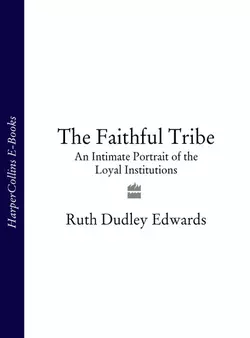The Faithful Tribe: An Intimate Portrait of the Loyal Institutions

Ruth Edwards
Тип: электронная книга
Жанр: Историческая литература
Язык: на английском языке
Стоимость: 774.44 ₽
Статус: В продаже
Издательство: HarperCollins
Дата публикации: 16.04.2024
Отзывы: Пока нет Добавить отзыв
О книге: The first, intimate portrait of the Orange Order.If there is any more controversial body of men (and, with the exception of Ruth Dudley Edwards, who has been admitted to an honorary position in her very own lodge, they are all men) in the British Isles, it is hard to think who they might be. To most outsiders, grown men parading in bowler hats, white gloves, coloured sashes or collarettes, rolled umbrellas and banners showing scenes from the Old Testament or from a war that ended three centuries ago, are anachronistic, silly and provocative; to their enemies they are triumphalist bigots; to most of their members, the lodges’ parades are a commemoration of the courage of their forefathers, a proud declaration of their belief in civil and religious freedom, a demonstration of their Britishness, a chance to catch up with old friends and a jolly day out.Ruth Dudley Edwards is an unlikely Joan of Arc for the Orangemen, but that she is; a trusted and liked sympathizer, a woman, a Catholic from southern Ireland; one who sees them as possibly rather bumptious and certainly their own worst enemy, endlessly outpaced by the nimble Republicans in terms of PR (which the Orangemen scorn to meddle with). She has written a fond but not uncritical, indeed rather exasperated, portrait of this tribe, with lashings of insider detail and revelation which no one else could hope to obtain.